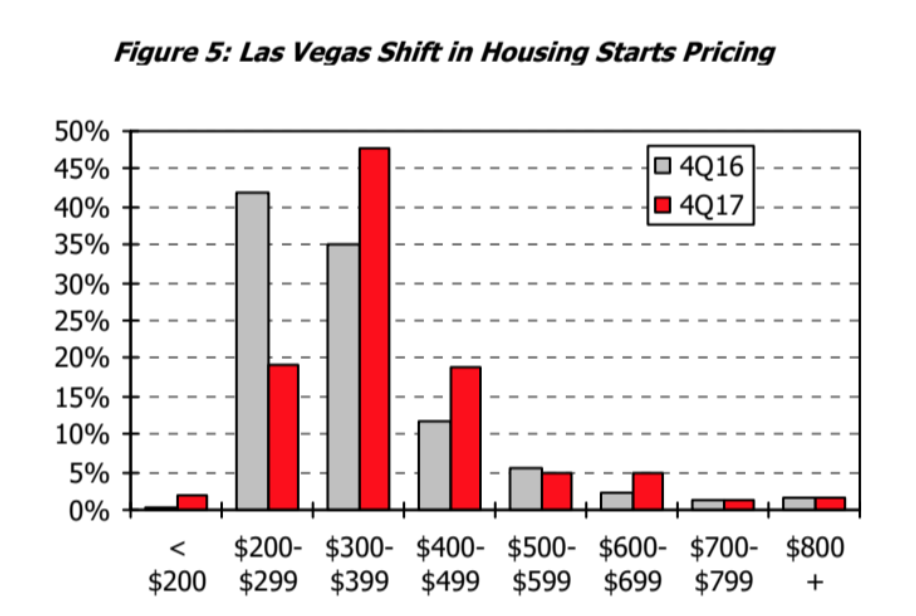Housing starts in Las Vegas, Nevada, surged to housing boom levels at the end of 2017, according to a new survey from Metrostudy, a provider of primary and secondary market information to the housing and related industries.
Housing starts increased 9% from the fourth quarter of 2016 to the fourth quarter of 2017, bringing new home construction to its highest level since 2008 in Las Vegas, the report states.
However, these new homes are increasingly being built as more expensive, trade-up homes. In 2016, 42% of homes built were priced below $300,000 and in 2017, only 21% were built below that price line.
The chart below shows homes built in the $200,000 to $299,000 price range plummeted from last year, whereas homes built in the $300,000 to $399,000 price range increased. Even homes built in the $400,000 to $499,000 price range saw a fairly notable increase from the year before.
Click to Enlarge
(Source: Metrostudy)
“Production of all homes – including attached – priced under $200k has been nearly eliminated as base prices have shifted into the $300k-$500k range,” said Greg Gross, Regional Director of Metrostudy’s Las Vegas market. “4Q17 marks the quarter that the market begins to see less product below $300k, as only 21% of starts were below $300k range, where as last year, 42% were.”
Average prices for new homes increased 7% from the fourth quarter of 2016 to $455,000 in the fourth quarter of 2017, and the average asking price of for-sale homes in a full 21% higher at $476,000, the highest point since 2007.
Las Vegas remains an in-migration market, mainly adding population from residents from southern California residents disillusioned with the rising costs of housing, taxes and declining purchasing power, according to the study. The mix of these factors will continue to make Las Vegas an attractive alternative to southern California for the foreseeable future, which should aid in the continued growth of the area’s economy and population base.
Metrostudy forecasts the city will add a total of 10,400 new home starts in 2018 as demand continues to surge.


